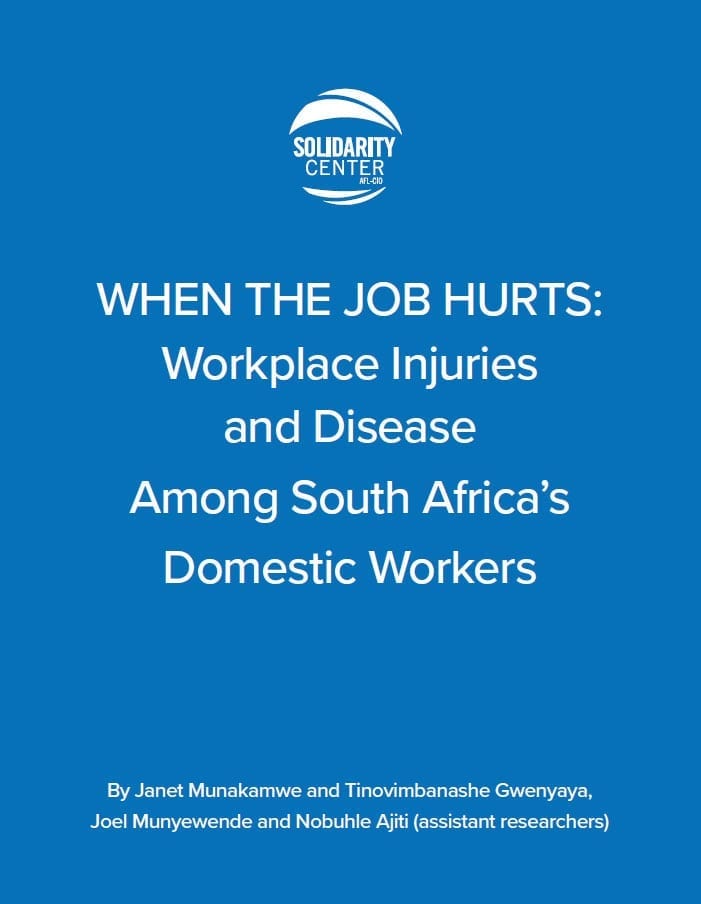
Jan 8, 2020
Through individual case studies and legal analysis, When the Job Hurts demonstrates the need for domestic workers in South Africa to receive the same coverage under the country’s job safety and health compensation law as other workers.
Download report.
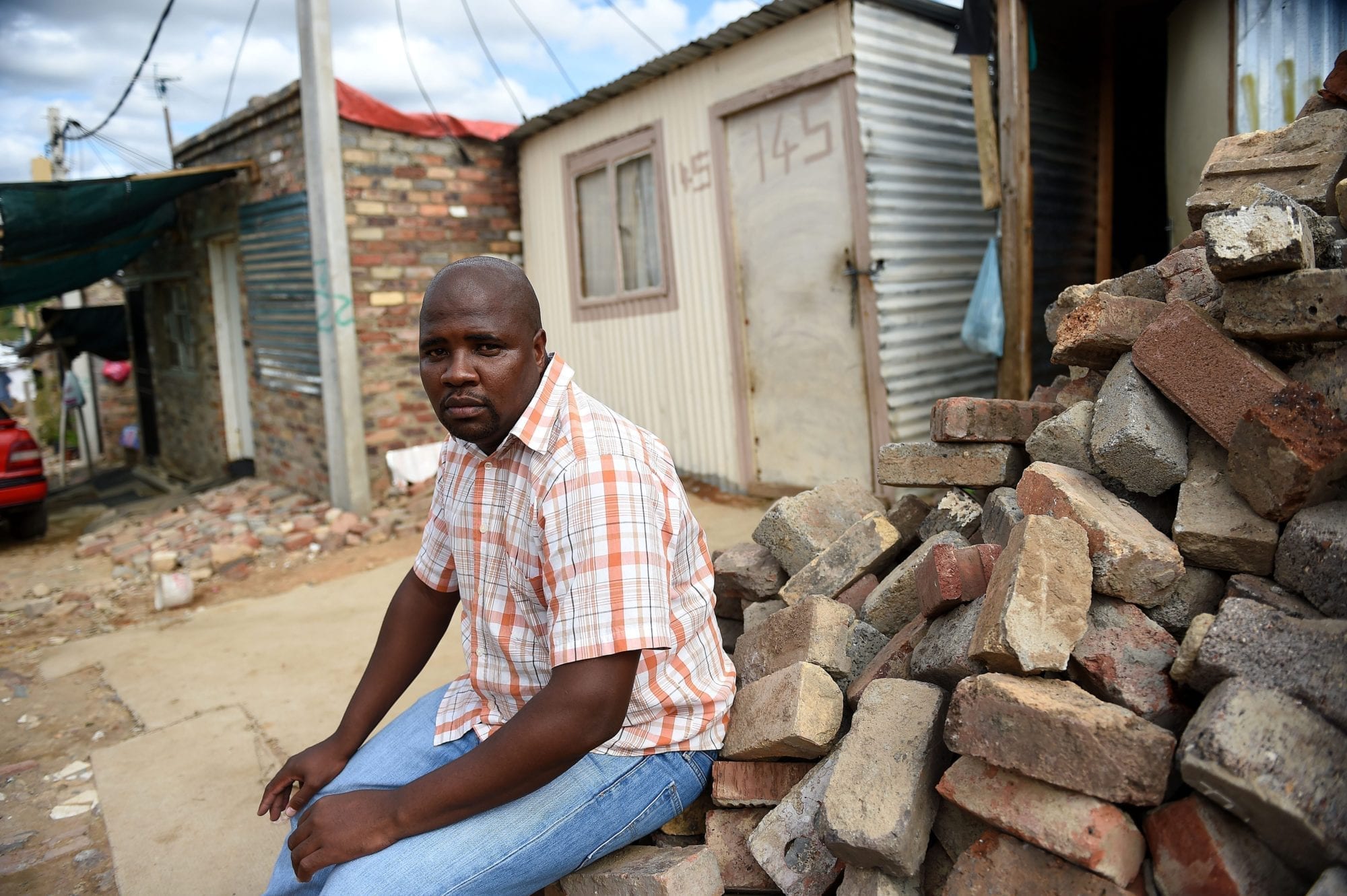
May 14, 2019
As a migrant mine worker from Swaziland, Mduduzi Thabethe says he has fewer workplace rights than his South African co-workers. Although all mine workers pay the same amount into the health fund, migrant workers get inferior care and pensions are rare.
“If you are a citizen of South Africa, you see you are building your country and you have something, but we have nothing.”
Although media and policymakers focus on African migrants to Europe, some 80 percent of African migrant workers remain on the continent.
Thabethe’s union, the Association of Mineworkers and Construction Union, is among those working to improve conditions for migrant workers.
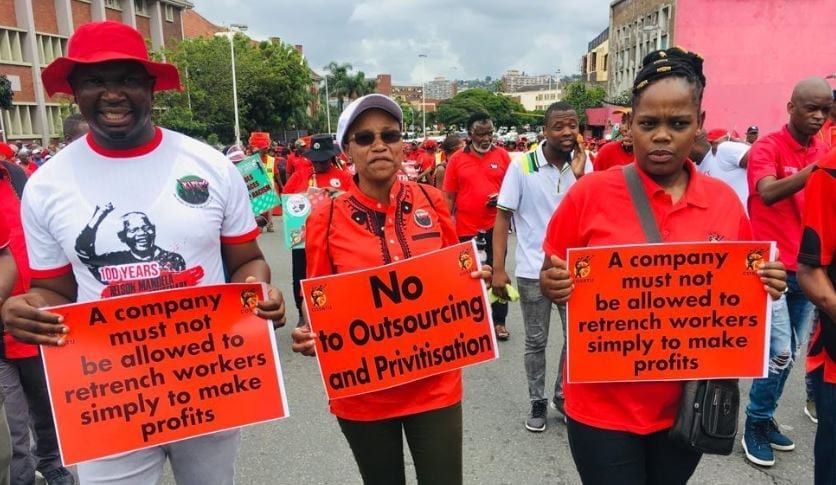
Feb 14, 2019
The Congress of South African Trade Unions (COSATU) launched a general strike across eight provinces Wednesday as a warning to South Africa’s governing party, the African National Congress (ANC), to address rampant job losses and unemployment across the public and private sectors.
“We are tired of economic growth that does not create employment opportunities, that increases inequality, ignores and undermines cultural identities, and that squanders resources needed for future generations,” COSATU said, in a press statement.
Although the country’s official unemployment rate dropped 2 percent in the last quarter of 2018, to 27.1 percent, South Africa’s real employment rate is 38 percent. South Africa has one of the highest unemployment rates among similarly economically developed countries. Some 10 million people are jobless and more than 17 million are on welfare.
Later this month, workers in the Western Cape province will mobilize to pressure Finance Minister Tito Mboweni to include labor’s views on downsizing in the budget speech he will deliver in Cape Town on February 20.
After failing to convince government to declare a moratorium on downsizing workers, COSATU hopes its strike will slow the shedding of more jobs from the health care sector and South Africa’s state-owned enterprises—including energy company ESKOM, where retrenchments last year began without consultation with the National Union of Metalworkers of South Africa (NUMSA).
“[S]ince 2012, government gave the private sector corporate tax breaks,” said COSATU spokesperson Sizwe Pamla in an interview with SABC News. “Now we were saying to them, don’t you think it’s fair… to put a moratorium?”
The strike is supported by all major COSATU-affiliated unions, including the Democratic Nursing Organization of SA (Denosa), the South African Democratic Teachers` Union (SADTU), the South African Municipal Workers` Union (SAMWU), the South African Transport and Allied Workers` Union (SATAWU), the Communication Workers Union (CWU), the Police and Prisons Civil Rights Union (POPCRU) and the South African Commercial, Catering and Allied Workers Union (SACCAWU).
COSATU, with more than 1.5 million members, is a Solidarity Center ally in South Africa. As the strongest voice in civil society, the South African labor movement enables workers to join together for better wages, pro-worker economic policies and increased standards of living.
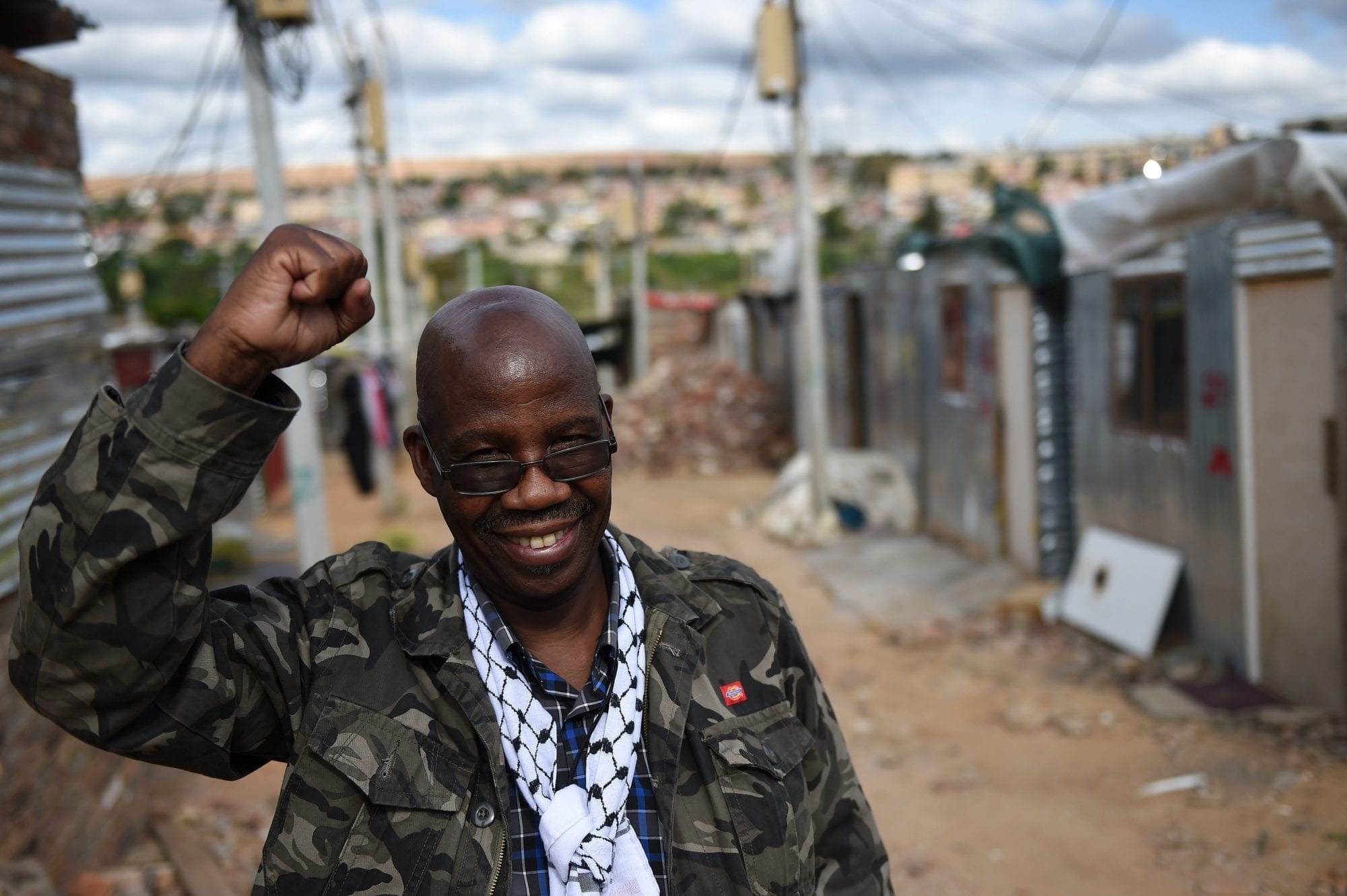
Oct 4, 2018
When Joe Montisetse came to South Africa from Botswana to work in gold mines in the early 1980s, he saw a black pool of water deep in a mine that signified deadly methane. Yet after he brought up the issue to supervisors, they insisted he continue working. Montisetse refused.
Two co-workers were killed a few hours later when the methane exploded.
Millions of jobs around the world do not offer safe and healthy workplaces—nor do they provide wages that enable workers to support themselves and their families or social protections and the sense of dignity that allow workers to enjoy the benefits of their own hard work.
To highlight the lack of decent work, each year on October 7, unions and their allies mark World Day for Decent Work. This year, they are calling for minimum wage-floors sufficient to ensure a decent standard of living and the right of all workers to join a union and bargain collectively.
Today, Montisetse is newly elected president of the National Union of Mineworkers, a position he achieved after helping form a local union at the gold mine soon after his co-workers’ deaths. After they formed the union, workers were safer, he says.
“We formed a union as mine workers to defend against oppression and exploitation.”
This year, the 10th anniversary of the World Day for Decent Work, workers like Montisete highlight the importance of the freedom to form unions and bargain collectively—fundamental human rights that enable workers to achieve decent work by joining together and successfully challenging global corporate practices that too often, risk lives and livelihoods.
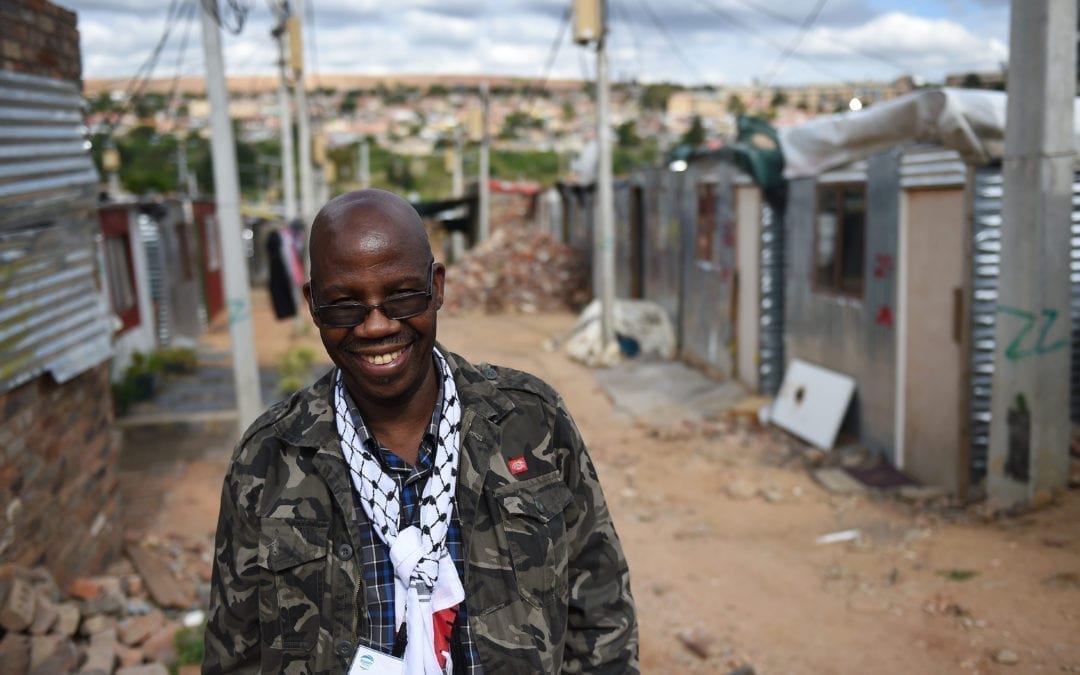
Oct 4, 2018
When Joe Montisetse came to South Africa from Botswana to work in gold mines in the early 1980s, he saw a black pool of water deep in a mine that signified deadly methane. Yet after he brought up the issue to supervisors, they insisted he continue working, but Montisetse refused.
Two co-workers were killed a few hours later when the methane exploded.
Today, Montisete is newly elected president of the National Union of Mineworkers, a position he achieved after helping form a local union at the gold mine soon after his co-workers’ deaths. After they formed the union, workers were safer, he says.
“We formed union as mine workers to defend against oppression and exploitation.”





